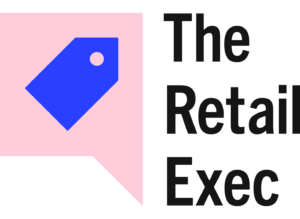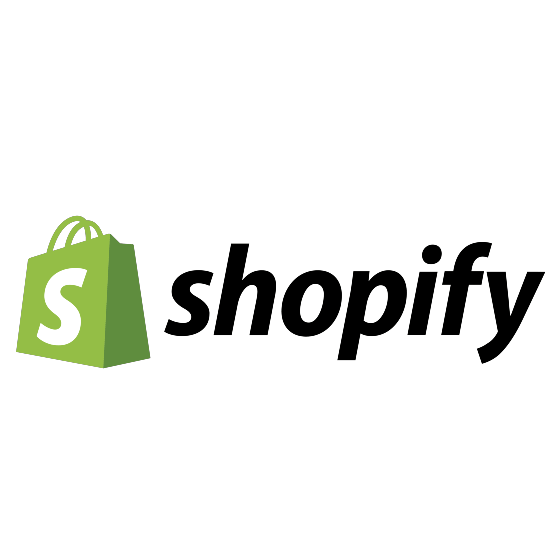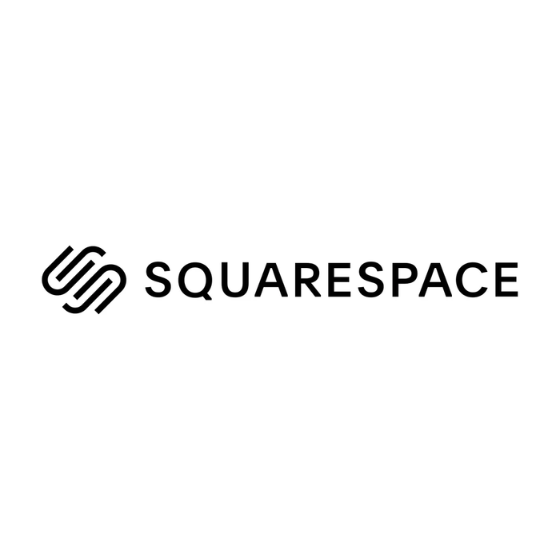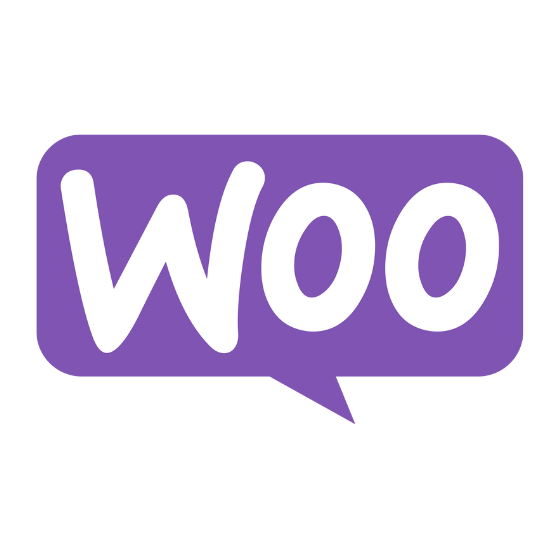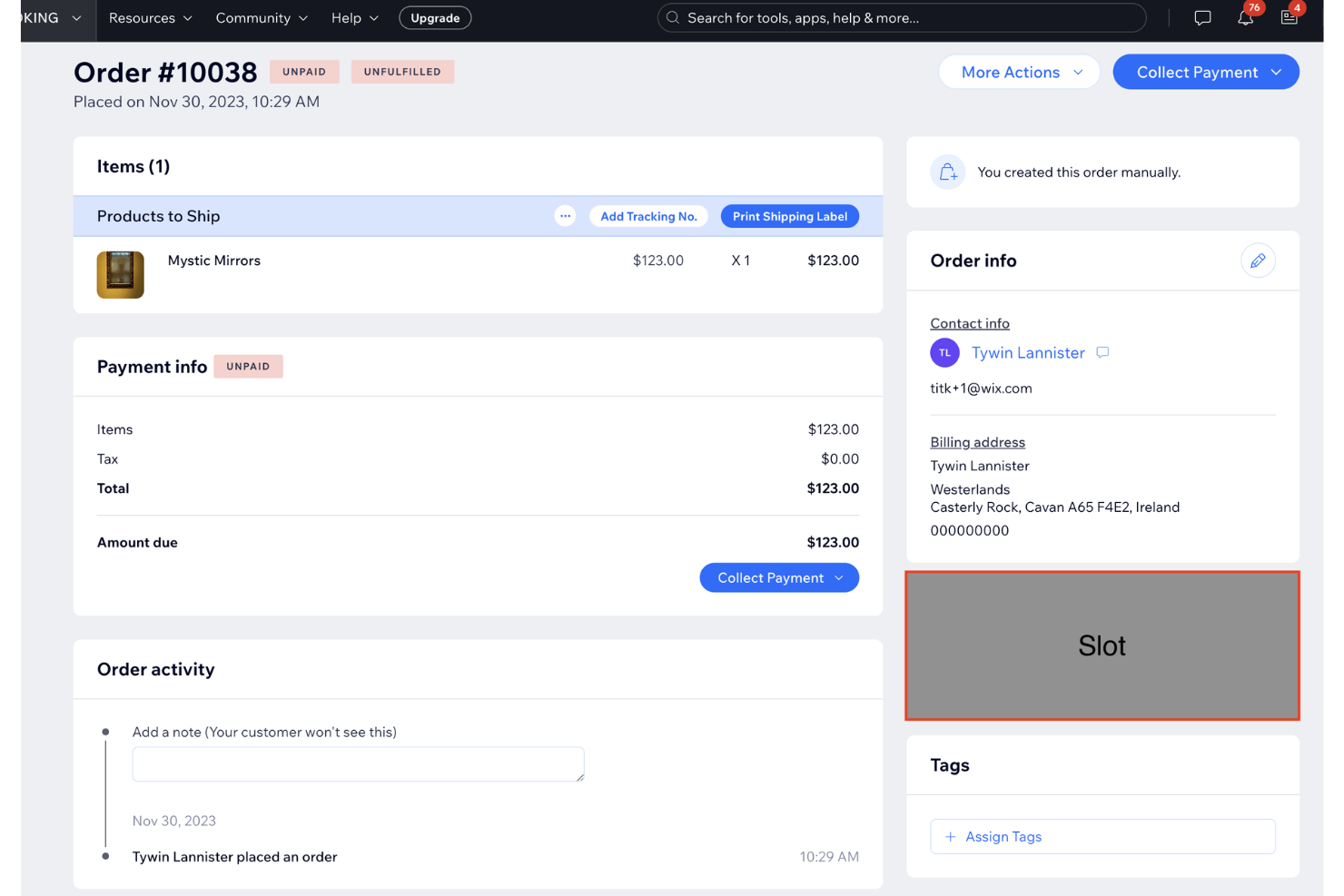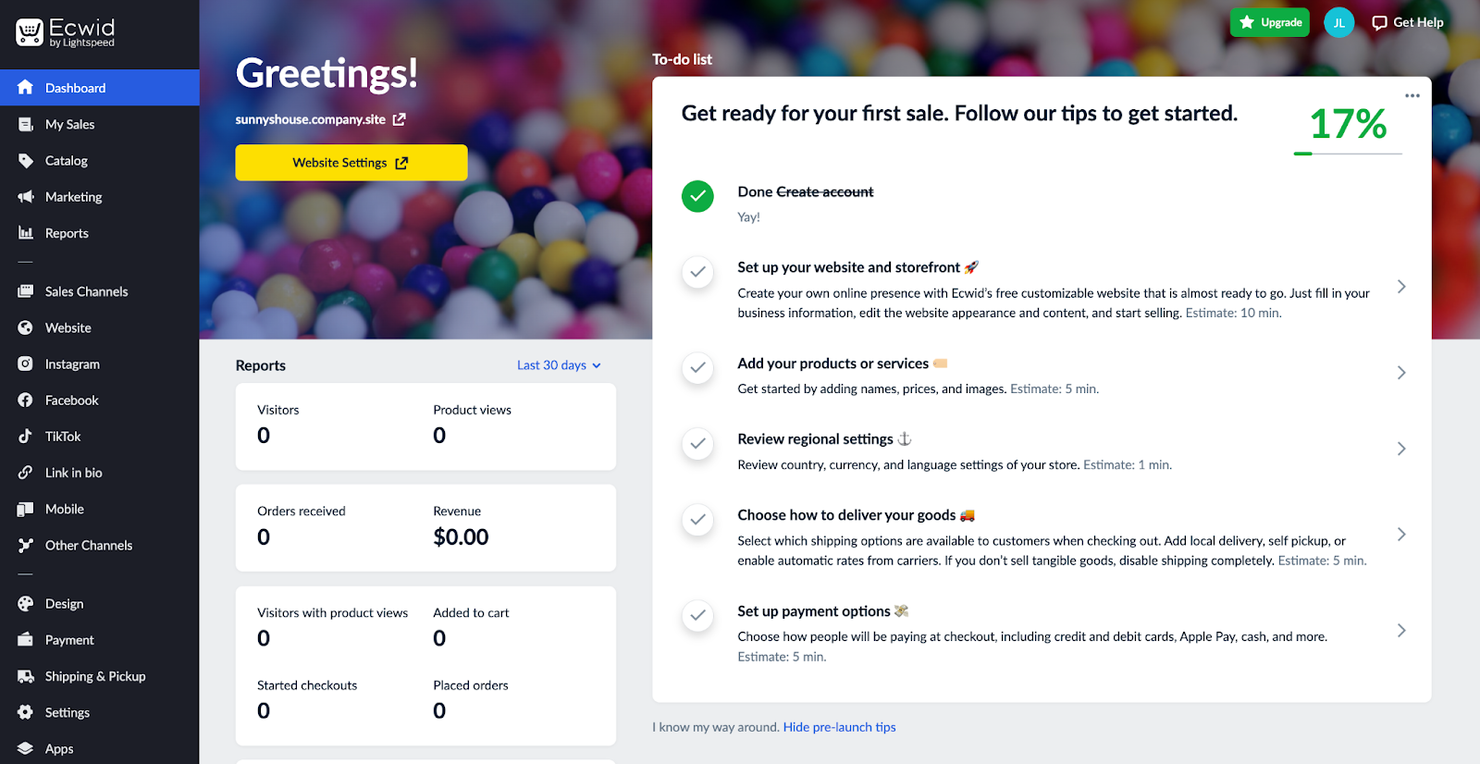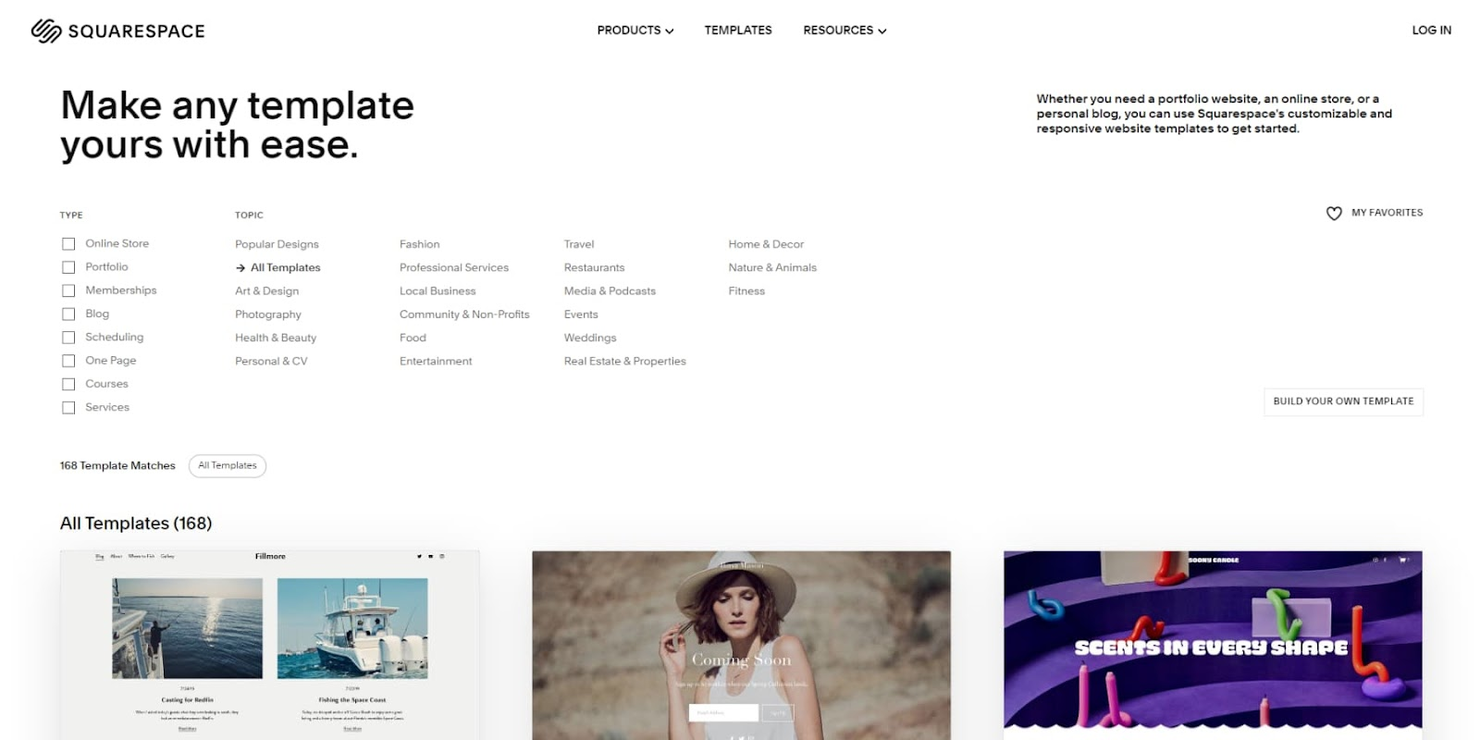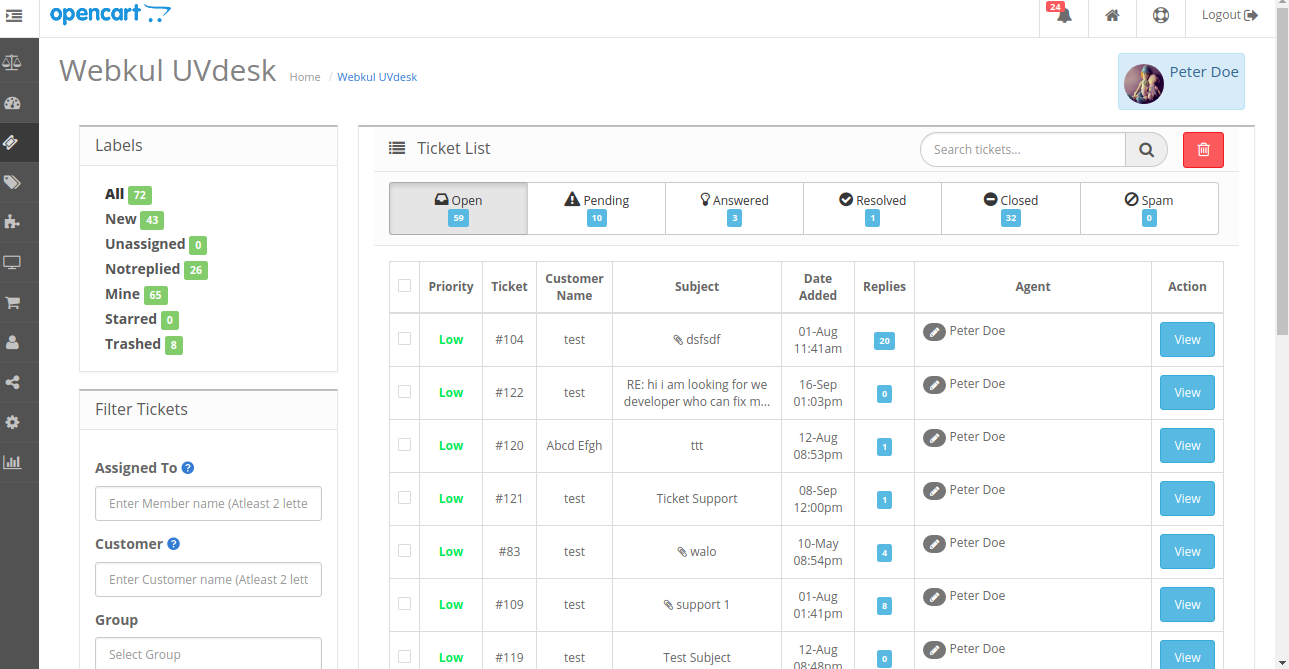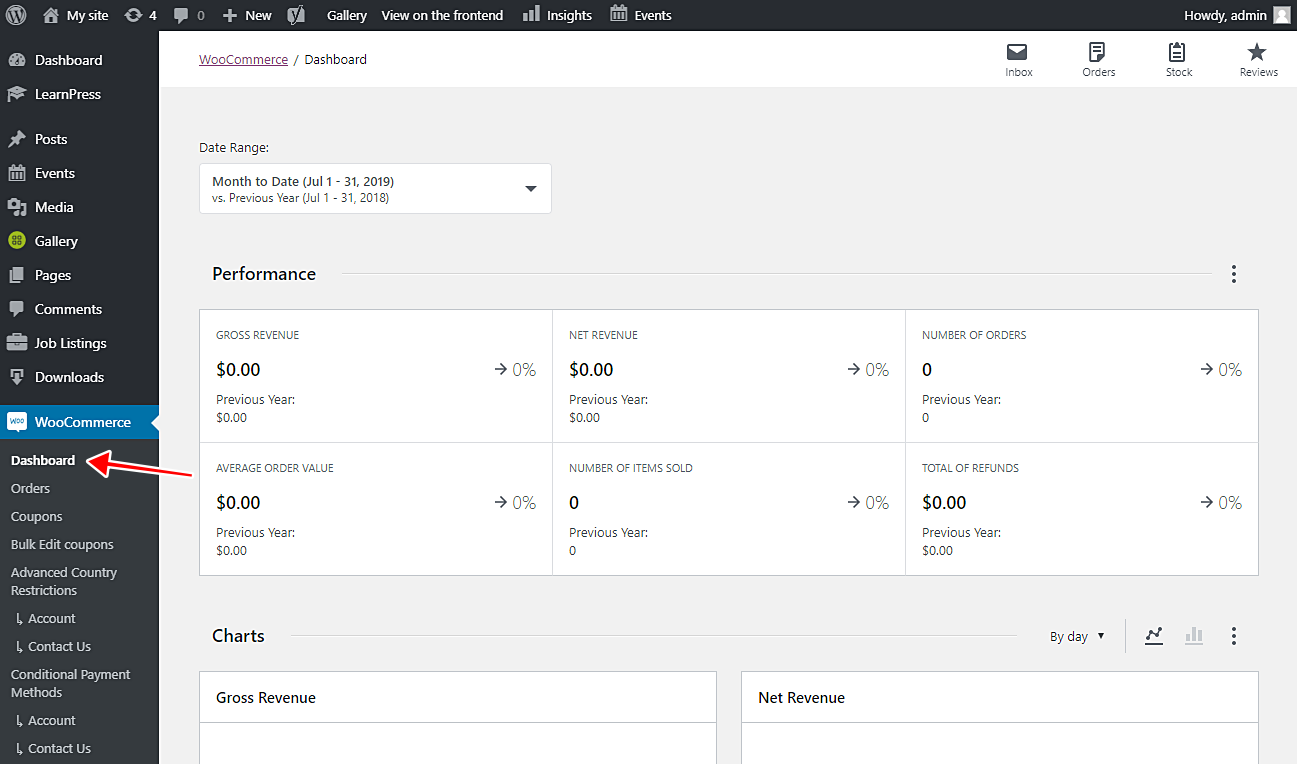The 10 Best Ecommerce Website Builders for Small Businesses
First, a top 10 list of our favorite store builders for small businesses before we move on to all the texty parts of this post.
Building an online store shouldn’t feel like filing your own taxes—tedious, confusing, and full of expensive mistakes. But if you’ve ever wrestled with clunky site builders, surprise fees, or checkout pages that look like they were designed in 2008, you know the struggle is real.
Good news: ecommerce website builders have leveled up.
Whether you’re slinging handmade jewelry, running a niche subscription box, or finally taking your side hustle full-time, there’s a platform that won’t make you want to throw your laptop out the window.
We’ve tested the top options, cut through the marketing fluff, and ranked the best ecommerce website builders for small businesses. Let’s get you set up with a store that actually works.
Why Trust Our Software Reviews
We’ve been testing and reviewing ecommerce management software since 2021.
As ecommerce experts ourselves, we know how critical and difficult it is to make the right decision when selecting software. We invest in deep research to help our audience make better software purchasing decisions.
We’ve tested more than 2,000 tools for different ecommerce management use cases and written over 1,000 comprehensive software reviews. Learn how we stay transparent & check out our software review methodology.
Table of Contents
Comparing the Best Ecommerce Website Builders for Small Businesses
Now for the part with the chart. Here you can compare our top 10 online store builders based on pricing, trial details, and use cases.
| Tool | Best For | Trial Info | Price | ||
|---|---|---|---|---|---|
| 1 | Best for ecommerce templates | Free plan available | From $17/month | Website | |
| 2 | Best for multichannel selling | Free plan available | From $14.08/month (billed annually) | Website | |
| 3 | Best for scalability | 3-day free trial available | From $29/month (billed annually) | Website | |
| 4 | Best for Latin American markets | 14-day free trial | From $19/month | Website | |
| 5 | Best for design flexibility | 14-day free trial | From $16/month (billed annually) | Website | |
| 6 | Best for customizability | Free plan available | OpenCart is free to use | Website | |
| 7 | Best for beginners | Free plan available | From $10/month (billed annually) | Website | |
| 8 | Best for comprehensive analytics | 14-day free trial | From $35/month | Website | |
| 9 | Best for WordPress users | Free plan available | From $10/month | Website | |
| 10 | Best for custom design control | Free demo available | From $29/month (billed annually) | Website |
The Best Ecommerce Website Builders for Small Businesses, Reviewed
Now we’re off to the races, I mean the reviews. Below we’ll give a detailed look at the key features, pros & cons, integrations, and ideal use cases of each tool to help you find the best one for you.
Wix is an all-in-one ecommerce platform that enables you to create a fully customizable online store. With its user-friendly website builder, you can design a professional eCommerce site tailored to your brand's needs.
Why I picked Wix: I like its extensive selection of over 500 designer-made templates. These templates cater to various industries and are fully customizable, allowing you to create a unique and professional online store that aligns with your brand identity. Wix also offers an AI website builder, Wix ADI, which can help create a tailored online store with a few questions about your store's goals and needs.
Standout features & integrations:
Features include inventory management, allowing you to track stock levels, manage product options like size and color, and receive notifications when inventory is running low. It also offers a mobile-optimized storefront that ensures your online store looks great and functions smoothly on any device.
Integrations include Klaviyo, Easyship, AfterShip, Privy, SoundCloud, Mailchimp, Importify, Cart2Cart, Dropbox, Google Drive, AdScale, 123FormBuilder, JivoChat, Meta for Business, and Eventbrite.
Pros and cons
Pros:
- Mobile app for on-the-go store management
- AI website builder and extensive templates
- Comprehensive inventory management tools
Cons:
- Transaction fees may apply depending on the payment provider
- Limited flexibility in switching templates after site creation
Ecwid by Lightspeed is an ecommerce solution designed for small businesses looking to sell across multiple platforms. It serves entrepreneurs who want to expand their reach beyond a single website by offering a shopping cart that can be integrated into existing sites and social media channels.
Why I picked Ecwid by Lightspeed: It excels in multichannel selling, allowing you to manage sales from various platforms in one place. With its ability to integrate with websites, social media, and marketplaces, your team can reach more customers. The platform provides a centralized dashboard to track all sales and inventory. It also supports mobile point-of-sale systems, making it versatile for both online and offline transactions.
Standout features & integrations:
Features include a mobile-responsive design for your store, enabling customers to shop from any device. You can use its automated tax calculations to ensure compliance with local laws. The platform offers customizable shipping options to meet different customer needs.
Integrations include Facebook, Instagram, Amazon, eBay, Google Shopping, Mailchimp, QuickBooks, Square, Stripe, and PayPal.
Pros and cons
Pros:
- Automated tax calculations
- Supports mobile POS systems
- Centralized sales dashboard
- Easy multichannel integration
Cons:
- Requires some technical setup
- Basic reporting capabilities
- Limited design customization
Shopify is an ecommerce platform designed to support businesses of all sizes, especially those looking to grow and scale. It offers a comprehensive suite of tools to help you build, operate, and expand an online store efficiently.
Why I picked Shopify: It excels in scalability, making it a top choice for businesses planning to grow. With its extensive app store, you can add functionalities tailored to your business needs. The platform provides a reliable infrastructure that can handle high traffic and large catalogs. Additionally, Shopify's multichannel capabilities let you sell across different platforms, maximizing your reach.
Standout features & integrations:
Features include a user-friendly drag-and-drop store builder, detailed analytics to help you track performance, and customizable templates for a unique store design. You can use its built-in payment processing to simplify transactions. The platform also supports abandoned cart recovery to boost sales.
Integrations include Facebook, Instagram, Amazon, eBay, QuickBooks, Mailchimp, Google Analytics, Stripe, PayPal, and Pinterest.
Pros and cons
Pros:
- Built-in payment processing
- Reliable for high traffic sites
- Strong multichannel selling features
- Extensive app store available
Cons:
- Some learning curve for beginners
- Requires apps for advanced features
- Transaction fees without Shopify Payments
Jumpseller is an ecommerce platform aimed at small to medium-sized businesses, particularly in Latin America. It provides tools to help you create and manage an online store with ease, focusing on localization and regional needs.
Why I picked Jumpseller: It caters specifically to Latin American markets with support for local payment gateways and languages. This focus helps your team connect with regional customers more effectively. Jumpseller offers a variety of customizable templates to match your brand's style. Additionally, it provides multilingual support, making it easier to reach a diverse audience.
Standout features & integrations:
Features include customizable templates to reflect your brand identity, a responsive design to ensure your store looks great on any device, and multilingual support to cater to various language speakers. You can also use its built-in analytics to track store performance. The platform offers local payment gateway support, enhancing transaction convenience for regional customers.
Integrations include Facebook, Instagram, Google Analytics, Mailchimp, PayPal, Stripe, MercadoPago, Transbank, Pagar.me, and ShipStation.
Pros and cons
Pros:
- Responsive design templates
- Good for regional payment gateways
- Multilingual options available
- Strong support for local currencies
Cons:
- Basic SEO capabilities
- Fewer advanced features
- Limited scalability for larger businesses
Squarespace is a website builder tailored for small businesses and creative individuals who need a visually appealing online store. It provides a range of design tools to help you create a professional-looking site with ease.
Why I picked Squarespace: It offers extensive design flexibility with its wide array of customizable templates, making it ideal for businesses focused on aesthetics. You can easily modify templates to align with your brand's identity. The platform includes built-in tools for blogging and social media integration to help expand your reach. Additionally, it provides a comprehensive set of ecommerce features like inventory management and secure checkout.
Standout features & integrations:
Features include a drag-and-drop editor for easy site customization, built-in analytics to track your store's performance, and mobile-optimized templates to ensure a seamless shopping experience on all devices. You can also use its blogging tools to engage with your audience. The platform's social media integration helps you connect with customers on various platforms.
Integrations include Instagram, Facebook, Twitter, Pinterest, Mailchimp, Google Analytics, PayPal, Stripe, Apple Pay, and G Suite.
Pros and cons
Pros:
- Mobile-optimized templates
- Strong social media integration
- Built-in blogging tools
- Extensive template customization
Cons:
- No advanced SEO tools
- Requires some design knowledge
- Limited ecommerce features
OpenCart is an open-source ecommerce platform designed for businesses that need a customizable online store solution. It caters to users who want to tailor their ecommerce site to specific requirements without being tied to proprietary software limitations.
Why I picked OpenCart: It offers extensive customizability, allowing you to modify your store to fit your exact needs. With its open-source nature, you can access the source code and make changes as required. The platform supports multiple stores from a single interface, making it efficient for managing various sites. Additionally, it provides a wide range of themes and extensions to enhance functionality.
Standout features & integrations:
Features include a multi-store management system, enabling you to operate multiple shops from a single dashboard. You can use its built-in affiliate system to boost marketing efforts. The platform also supports multiple languages and currencies, making it suitable for international businesses.
Integrations include PayPal, SagePay, Amazon Payments, Klarna, WorldPay, Skrill, Authorize.Net, FedEx, UPS, and Royal Mail.
Pros and cons
Pros:
- Extensive language support
- Open-source flexibility
- Supports multiple stores
- Highly customizable with extensions
Cons:
- Limited official support
- Can be resource-intensive
- Requires technical knowledge for setup
Weebly is an ecommerce platform ideal for small businesses and individuals new to online sales. It provides user-friendly tools for building and managing an online store without technical expertise.
Why I picked Weebly: It caters to beginners with its intuitive drag-and-drop interface, making it accessible for those without coding skills. You can set up your store quickly, thanks to its pre-designed templates. The platform offers essential ecommerce features like inventory management and secure checkout. With its easy-to-use dashboard, managing your store becomes a straightforward task for your team.
Standout features & integrations:
Features include drag-and-drop website building, pre-designed templates for quick setup, and a secure shopping cart to ensure safe transactions. You can manage inventory with ease through its comprehensive dashboard. The platform also provides SEO tools to help your store get discovered online.
Integrations include PayPal, Stripe, Square, Facebook, Instagram, Google Analytics, Mailchimp, Shippo, ShipStation, and TaxJar.
Pros and cons
Pros:
- SEO tools provided
- Secure shopping cart included
- Pre-designed templates available
- Intuitive drag-and-drop builder
Cons:
- No advanced ecommerce tools
- Basic reporting features
- Limited customization options
Volusion is an ecommerce platform tailored for small to medium-sized businesses, offering a suite of tools to build and manage online stores. Its main functions include product management, order processing, and detailed analytics to help you understand your business performance.
Why I picked Volusion: It provides comprehensive analytics that allow you to make data-driven decisions. You can access detailed reports on sales trends and customer behavior, which are crucial for optimizing your store's performance. Volusion also offers built-in SEO tools to enhance your website's visibility. Additionally, it supports various payment gateways, ensuring a smooth transaction process for your customers.
Standout features & integrations:
Features include drag-and-drop site editing for easy customization, built-in SEO tools to improve search rankings, and a secure checkout process to protect customer data. You can also use its inventory management system to keep track of stock. The platform provides a mobile app, allowing you to manage your store on the go.
Integrations include PayPal, Stripe, Mailchimp, QuickBooks, Amazon, eBay, ShipStation, FedEx, UPS, and Google Analytics.
Pros and cons
Pros:
- Secure checkout process
- Supports multiple payment gateways
- Built-in SEO tools
- Detailed sales analytics
Cons:
- Basic design templates
- Can be resource-intensive
- Limited customization options
WooCommerce is a flexible ecommerce plugin designed for WordPress websites, catering to businesses wanting to add online selling features to their existing sites. It provides a range of tools to help you manage products, orders, and payments effectively.
Why I picked WooCommerce: It's tailored for WordPress users, offering easy integration with existing WordPress sites. You can customize your store extensively with numerous themes and extensions. The platform supports various payment gateways, providing flexibility in handling transactions. Additionally, WooCommerce's open-source nature allows for high customizability, making it adaptable to your specific business needs.
Standout features & integrations:
Features include a wide array of themes to match your brand's look, comprehensive inventory management to keep track of stock, and built-in blogging capabilities to engage with customers. You can also use its flexible shipping options to cater to different delivery needs. The platform supports multiple currencies, making it suitable for international sales.
Integrations include Mailchimp, Stripe, PayPal, Facebook, Zapier, ShipStation, Square, Google Analytics, WooCommerce Subscriptions, and Jetpack.
Pros and cons
Pros:
- Open-source flexibility
- Highly scalable with plugins
- Supports multiple currencies
- Seamless WordPress integration
Cons:
- Reliance on plugins for features
- Can be resource-intensive
- Requires WordPress knowledge
Webflow is an ecommerce platform tailored for businesses and designers who want full control over their website's design without writing code. It allows users to create visually stunning and highly customized online stores.
Why I picked Webflow: It offers unparalleled custom design control, making it perfect for those who want to tailor every aspect of their store's appearance. You can use its visual editor to design and launch a unique site without relying on templates. Webflow also provides responsive design features, ensuring your store looks great on all devices. Additionally, it includes CMS capabilities, allowing your team to manage content with ease.
Standout features & integrations:
Features include a visual editor for precise design customization, responsive design tools to ensure compatibility across devices, and CMS capabilities for easy content management. You can also use its hosting services for fast and secure site performance. The platform offers design animations to enhance user experience and engagement.
Integrations include Zapier, Google Analytics, Mailchimp, Facebook Pixel, HubSpot, Slack, Stripe, PayPal, Salesforce, and Google Optimize.
Pros and cons
Pros:
- Hosting included for better performance
- Built-in CMS for content management
- Responsive design capabilities
- Full design control without coding
Cons:
- Requires some design knowledge
- Not ideal for large product catalogs
- Limited ecommerce features
Other Ecommerce Website Builder for Small Business
Here are some additional ecommerce website builder for small business options that didn’t make it onto my shortlist, but are still worth checking out:
- Branchbob
For free online stores
- Big Cartel
For artists and makers
- Shift4Shop
For built-in payment processing
- Zoho Commerce
For business integrations
- Web.com
For quick setup
- Hostinger
For budget-friendly hosting
- BigCommerce
For enterprise-level scalability
- Strikingly
For single-page stores
- GoDaddy Online Store
For domain management
- Sellfy
For digital product sales
- Square Online
For in-person sellers
- Tilda
For storytelling design
- Mozello
For multilingual stores
- MyOnlineStore
For European markets
- Voog
For multilingual support
Our Selection Criteria for Ecommerce Website Builders for Small Businesses
Finding the right ecommerce website builder isn't just about picking the cheapest or flashiest option—it's about getting a platform that fits your ecommerce business needs, budget, and future growth. Top ecommerce development companies can help you make this critical decision. Here’s how I evaluated each tool.
Core functionality (25% of total score)
Every platform had to meet these basic ecommerce requirements:
- Ability to create and manage product listings
- Secure checkout process with integrated payment options
- Customizable store templates for branding
- Inventory tracking and order management tools
- Mobile-friendly storefront design
Additional standout features (25% of total score)
Beyond the basics, I looked for tools that offer:
- Multichannel selling capabilities (social media, marketplaces, in-person)
- Built-in marketing tools like email campaigns and discount codes
- Advanced SEO features for better search rankings
- Mobile apps for managing the store on the go
- Customizable shipping options with real-time carrier rates
Usability (10% of total score)
A platform should make it easy to run your store, not slow you down. I evaluated:
- How intuitive the dashboard and navigation are
- Whether drag-and-drop design tools are available
- The mobile-friendliness of the storefront and admin panel
- How easily products, categories, and pages can be organized
- The quality of user guides and learning resources
Onboarding (10% of total score)
Getting started should be quick and painless. I looked for:
- Clear setup guides and interactive product tours
- Pre-designed templates with ecommerce best practices built in
- Available training videos and tutorials
- AI-driven onboarding tools or chat-based setup assistance
Customer support (10% of total score)
When issues come up, fast and effective support matters. I considered:
- Availability of live chat, email, and phone support
- 24/7 support options for businesses that don’t work 9–5
- Depth and clarity of help center documentation
- Active user communities for troubleshooting and best practices
Value for money (10% of total score)
A higher price isn’t always a dealbreaker, but the platform should justify its cost. I assessed:
- Features offered at each pricing tier
- Availability of free plans or low-cost starter options
- Transparency of pricing with no hidden fees
- Discounts for annual billing or bundled services
Customer reviews (10% of total score)
Real-world feedback from actual users helped confirm my rankings. I analyzed:
- Overall satisfaction ratings across multiple review sites
- Common praise and complaints about features and usability
- Reports on performance, security, and reliability
- Feedback on the effectiveness of customer support
What is an Ecommerce Website Builder for Small Business?
An ecommerce website builder is an all-in-one tool that lets small businesses create, launch, and manage an online store—without needing to write a single line of code.
These platforms handle everything from product listings and payment processing to inventory tracking and shipping integration.
Instead of hiring a developer or dealing with clunky, outdated software, an ecommerce website builder gives you the tools to design a professional-looking store with drag-and-drop simplicity and specialized landing page builders.
Whether you're selling handmade jewelry, digital downloads, or a full catalog of products, the right platform makes it easy to start selling fast.
Most ecommerce website builders include:
- Customizable store templates to match your brand’s look
- Secure checkout and payment processing for seamless transactions
- Inventory and order management tools to keep things organized
- SEO and marketing features to help customers find you online
- Mobile-friendly design so your store works on any device
For small ecommerce business owners, the best cheap ecommerce platforms strike a balance between ease of use, flexibility, and affordability—giving you everything you need to sell online without getting bogged down in technical headaches.
How to Choose Ecommerce Website Builders for Small Business
Choosing the right ecommerce website builder isn’t just about picking a tool with the most features—it’s about finding the one that actually works for your business.
To keep your decision focused, use this checklist to match a platform to your needs.
| Factor | What to Consider |
|---|---|
| Plan for growth | Pick a platform that can handle more traffic and products as your online business scales. Avoid tools that lock you into limited plans with high upgrade fees. |
| Integrate your stack | Make sure the platform plays nice with your existing tools—like payment processors, shipping services, and marketing automation software. |
| Customize your store | Look for design flexibility. Can you tweak templates to match your brand, or are you stuck with cookie-cutter layouts? |
| Keep it simple | Choose a platform with an intuitive interface. If it takes weeks to figure out the basics, it’s probably not the right fit. |
| Stick to your budget | Compare pricing plans carefully. Some platforms lure you in with low entry prices but nickel-and-dime you with add-ons and transaction fees. |
| Protect your customers | Security is non-negotiable. Ensure the platform includes SSL certificates, PCI compliance, and data encryption to keep customer info safe. |
| Check support quality | You’ll need help at some point. Look for 24/7 customer support and real user reviews on response times and effectiveness. |
| Optimize for search | SEO tools matter. Make sure the platform supports custom domain and URLs, meta tags, and other essentials for ranking in search engines. |
The best ecommerce website builder isn’t necessarily the most powerful—it’s the one that makes running your business easier. Focus on what you actually need to sell efficiently, and don’t get distracted by flashy features you’ll never use.
Trends in Small Business Online Store Builders
Ecommerce website builders are evolving fast, bringing small businesses powerful tools that were once reserved for big-budget brands.
Here are the biggest shifts happening right now:
- Headless commerce is going mainstream. Platforms like Shopify and Webflow are ditching rigid templates and giving online businesses total design freedom with API-driven storefronts. More control, fewer limits.
- Augmented reality (AR) is changing the shopping experience. Customers can now “try before they buy” with AR features that show products in real-world settings. Wix and Shopify are already making this possible for small businesses.
- Voice commerce is gaining traction. More shoppers are using voice assistants like Alexa to find and buy products. Ecommerce platforms are adapting with better voice search optimization and streamlined voice-powered checkout.
- Sustainability features are becoming a selling point. Eco-conscious consumers want greener options, and platforms like Ecwid are adding carbon-neutral shipping and ethical sourcing tools to meet the demand.
- AI-driven personalization is getting smarter. AI is no longer just for chatbots—it’s recommending products, predicting what customers will buy next, and even adjusting prices in real time. BigCommerce and WooCommerce are rolling out AI-powered marketing tools.
Bottom line: Ecommerce website builders aren’t just keeping up with trends—they’re redefining how small businesses sell online.
Key Features of Ecommerce Website Builders for Small Business
Not all ecommerce website builders are created equal. The best ones go beyond basic store setup and give you the tools to sell smarter, scale faster, and keep customers coming back.
Here are the key features to look for:
- Customizable templates. Get a professional-looking store without hiring a designer. The best platforms let you tweak layouts, colors, and branding to match your style.
- Payment gateway integration. Accept credit cards, PayPal, Apple Pay, and more without setting up separate merchant accounts. Look for platforms with built-in payment processing for smoother checkouts.
- Inventory management. Track stock levels, set up low-stock alerts, and sync inventory across multiple sales channels—so you never accidentally sell something you don’t have.
- SEO tools. Rank higher on Google with built-in features like customizable URLs, meta tags, and automatic sitemaps. If customers can’t find you, they can’t buy from you.
- Mobile responsiveness. More than half of online shopping happens on mobile. Your store should look good and function flawlessly on any device, no extra effort required.
- Multichannel selling. Sell on your website, Instagram, Facebook, Amazon, eBay, and even in person. The best platforms sync your inventory across all channels automatically.
- Analytics and reporting. Know what’s selling, who’s buying, and where your traffic is coming from. Good data leads to better business decisions.
- Security features. Customers won’t buy if they don’t trust your site. Look for SSL certificates, PCI compliance, and fraud detection tools to keep transactions safe.
- Drag-and-drop editor. No coding? No problem. A user-friendly editor lets you customize your store layout without touching a single line of code.
- Customer support options. Things break, questions come up, and you don’t have time to wait. The best platforms offer 24/7 live chat, phone support, and extensive help centers.
Benefits of Ecommerce Website Builder for Small Business
The right ecommerce platform does more than just help you build a store—it makes running your business easier, faster, and more profitable. Here’s what you get when you choose the right one:
- Faster setup, lower costs. Skip the expensive developers. Most ecommerce builders let you launch a store in hours, not weeks, for a fraction of the price.
- More sales opportunities. Sell across multiple channels, reach more customers, and tap into global markets with built-in multichannel tools.
- Simplified store management. Automate inventory tracking, payment processing, and shipping so you can focus on growing your business instead of handling logistics.
- Better customer experience. A fast, mobile-friendly, secure checkout process keeps customers happy—and coming back for more.
- Data-driven decisions. Built-in analytics help you track performance, optimize pricing, and fine-tune marketing strategies without guesswork.
- Scalability when you need it. Start small, then upgrade to advanced features and higher-tier plans as your business grows. No need to switch platforms later.
Your ecommerce website builder should work for you, not against you.
Costs & Pricing of Ecommerce Website Builders for Small Businesses
Ecommerce website builders come in all price ranges, from free starter plans to premium enterprise solutions. The right choice depends on your budget, growth plans, and the features you actually need.
Plan comparison table for ecommerce website builders
Below is a breakdown of common pricing tiers and who they’re best suited for.
Plan Type | Average Price | Common Features | Best For |
|---|---|---|---|
| Free Plan | $0 | Basic templates, limited product listings, basic support. | Hobby sellers, testing ideas before committing. |
| Personal Plan | $5–$25/ month | Customizable templates, basic SEO tools, email support. | Solo entrepreneurs/startups, small product catalogs. |
| Business Plan | $30–$75/ month | Advanced SEO, multichannel selling, analytics, priority support. | Growing businesses, online and social media sales. |
| Enterprise Plan | $100+/ month | Custom integrations, dedicated account manager, advanced analytics. | High-volume brands, scaling businesses. |
Additional cost considerations
Sticker price isn’t everything—some platforms tack on extra fees that can eat into your margins. Here’s what to watch for:
- Transaction fees. Some platforms charge a percentage of each sale unless you use their in-house payment processor. Shopify, for example, adds fees if you don’t use Shopify Payments.
- Add-ons and integrations. Need advanced features like abandoned cart recovery, email marketing, or third-party logistics? Many platforms charge extra for premium apps and extensions.
- Domain and hosting costs. Some plans include a free domain name for the first year, but after that, you’ll pay an annual renewal fee. If web hosting isn’t included, you’ll need to factor that in too.
- Scalability costs. If you outgrow your plan’s limits (like storage, bandwidth, or product listings), you may be forced into a higher-tier plan. Check for upgrade costs before you commit.
- Design and development. While most platforms offer drag-and-drop design tools, you might need a developer for advanced customizations, which adds to the overall cost.
The cheapest option isn’t always the best—look at the total cost of ownership, not just the monthly fee. If a platform charges lower upfront fees but takes a cut of every sale, you could end up paying more in the long run.
Ecommerce Website Builder for Small Business FAQs
Here are some answers to common questions about ecommerce website builder for small business:
How much does an ecommerce website builder cost?
Basic paid plans range from $5–$30/month, while feature-rich business plans cost $30–$75/month. Enterprise-level platforms start at $100+ per month. Look beyond the base price—some platforms charge transaction fees, add-on costs, or higher rates for premium features.
What’s the best ecommerce website builder for beginners?
If you want zero learning curve, go with Shopify or Weebly—both offer intuitive interfaces and pre-built templates. Big Cartel is also a great choice for artists and creatives looking for a simple storefront.
Can I sell on multiple platforms with an ecommerce website builder?
Yes, but only if the platform supports it. Shopify, Ecwid, and BigCommerce let you sell on Amazon, eBay, Instagram, Facebook, and your website—all from one dashboard.
Some smaller platforms (like Weebly or Big Cartel) focus mainly on standalone online stores.
Will I own my website, or does the platform control it?
Hosted platforms like Shopify, BigCommerce, and Squarespace mean you’re renting space—if you leave, you might have to start over.
Self-hosted platforms like WooCommerce or OpenCart give you full control but require you to manage web hosting, security, and updates yourself.
What payment methods should an ecommerce store accept?
At a minimum, you should support credit/debit cards, PayPal, and digital wallets (Apple Pay, Google Pay). If you’re selling internationally, look for a platform that supports regional payment options like Klarna, Alipay, or Afterpay.
How important is SEO for an ecommerce store?
Absolutely critical. If customers can’t find you, they can’t buy from you. Platforms like Shopify, BigCommerce, and Webflow offer strong SEO tools (custom URLs, meta tags, sitemaps), while Weebly and Big Cartel have more basic SEO capabilities.
Your Store Deserves Better Than a Clunky Website
A great ecommerce website builder does more than just help you set up shop—it keeps your business running smoothly, helps you reach more customers, and scales with you as you grow.
The wrong one? It slows you down, costs you money, and frustrates your customers.
Now that you know what to look for, it’s time to pick the best platform for your business. Whether you need a simple, beginner-friendly setup or a powerhouse for multichannel selling, the right tool is out there.
Choose wisely, and future-you will thank you.
Retail never stands still—and neither should you. Subscribe to our newsletter for the latest insights, strategies, and career resources from top retail leaders shaping the industry.
